RE
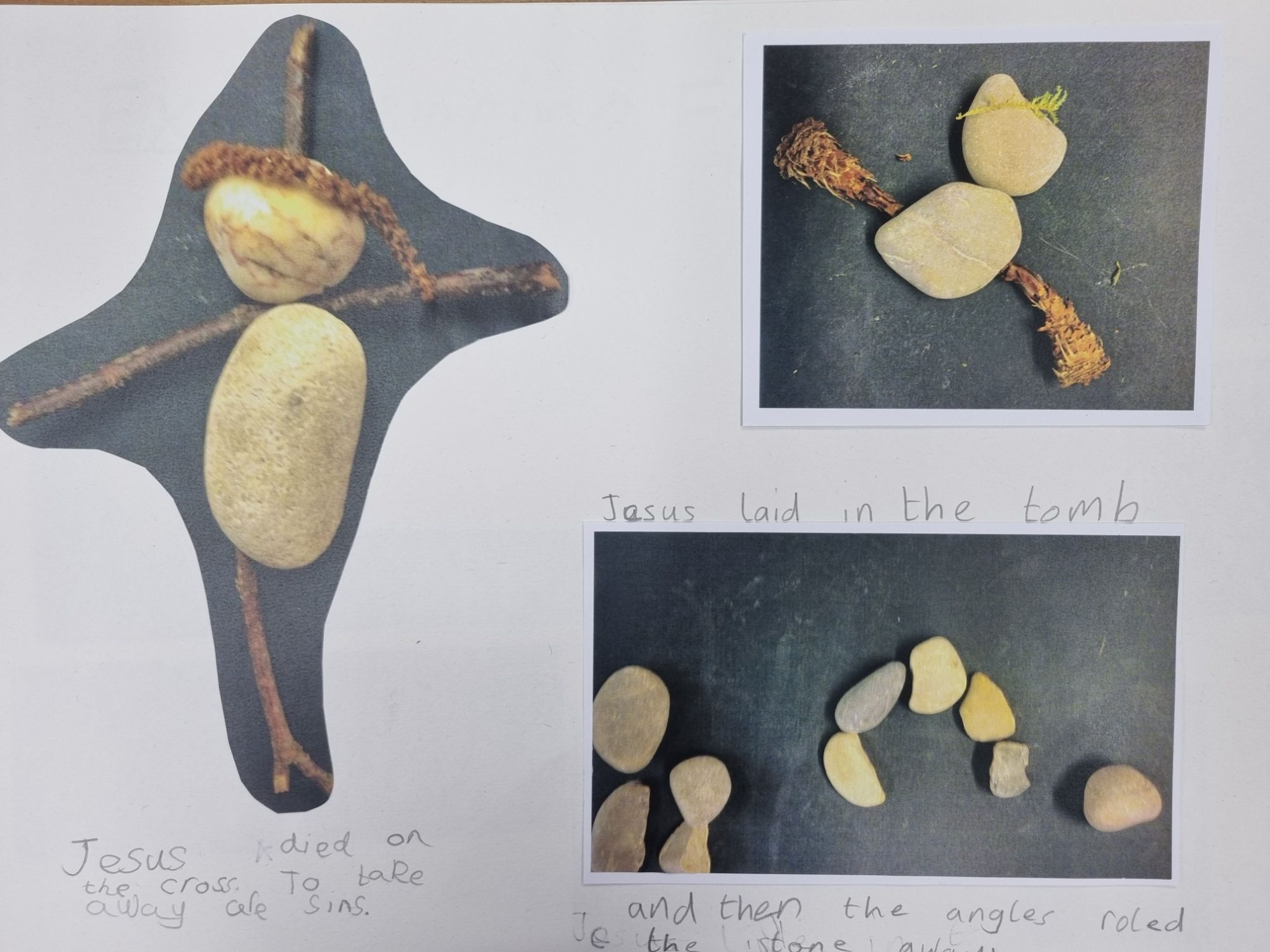
In our school, we value and respect all who are with or without faith.
We respect that we may believe different things.
At All Saints, pupils have the opportunity to learn about many different faiths, as well as focusing on Christianity. This allows pupils to develop a stronger awareness of the people we share our world with and enables them to find connections between the beliefs of others and their own lives.
RE in our school is a subject that creates a safe space for pupils to critically reflect on their own religious, spiritual or philosophical views.
Our Approach to Teaching RE
Our aim is to support pupils in developing their own thinking and their understanding of Christianity, as a contribution to their understanding of the world and their own experience within it. We use the resource materials from Understanding Christianity to help us with this.
By addressing key questions, Understanding Christianity encourages pupils to explore core Bible texts, examine the impact for Christians and consider possible implications. Each unit incorporates three elements:
* Making sense of the text – Developing skills of reading and interpretation; understanding how Christians interpret, handle and use biblical texts; making sense of the meanings of texts for Christians.
*Understanding the impact – Examining ways in which Christians respond to biblical texts and teachings, and how they put their beliefs into action in diverse ways within the Christian community and in the world.
*Making connections – Evaluating, reflecting on and connecting the texts and concepts studied, and discerning possible connections between these and pupils’ own lives and ways of understanding the world.
Each lesson will be made up of one or more of the above elements.
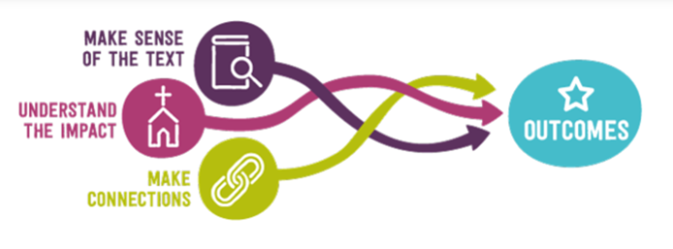
This model shows that the Understanding Christianity approach is not just getting pupils to learn what Christians think. Instead, it is about developing skills to help them ‘think theologically’ alongside learning lots of knowledge about the Bible, Christian belief and practice. It also shows that these three elements do not represent rigid, distinct steps, but that pupils can ‘make connections’ whilst ‘making sense of the text’, for example.
For the teaching of other religions (Judaism, Islam & Hinduism) we use a selection of resources from Awareness, Mystery & Value, which has been developed by Somerset SACRE and from Discovery RE.
These resources allow children to build an essential core knowledge of these different religions by...
- Including a summary of a few of the most important beliefs for each faith.
- Emphasising that each key religion has one key belief or 'Big Idea' which allows each religion to be better understood.
- Ensuring there is clear progression in each religion so they are built upon and developed throughout the different key stages.
Godly Play
Godly Play is a very different, but amazingly engaging, creative and imaginative method for exploring the Christian faith and heritage.
Through Godly Play, children experience and explore the stories of God’s people, of knowing Jesus through his life and his parables and understanding the way in which we approach God though liturgical action.
Godly play assumes that children (and adults) are individuals, with different needs. That we all have different ways to learn and that play is important in all our learning.
Godly Play creates a safe and open space, allowing children the opportunity to explore and develop an understanding of God.
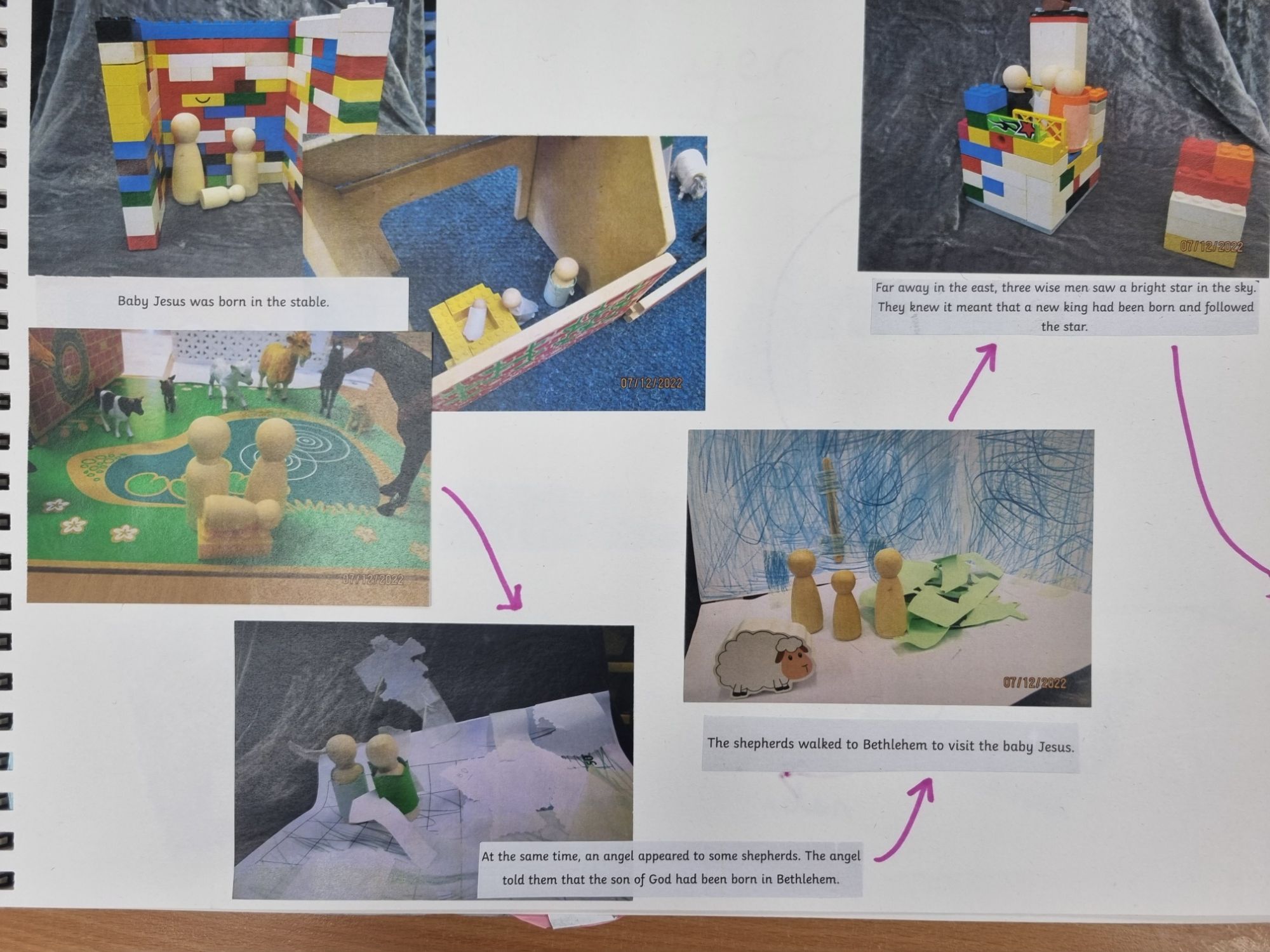
Floor books
As a school, we acknowledge the fact that RE learning and understanding is often through discussions and responding to images, experiences and events,. We keep records of these in our RE floor books which are in every class and provide children with a visual record of what they have experienced.
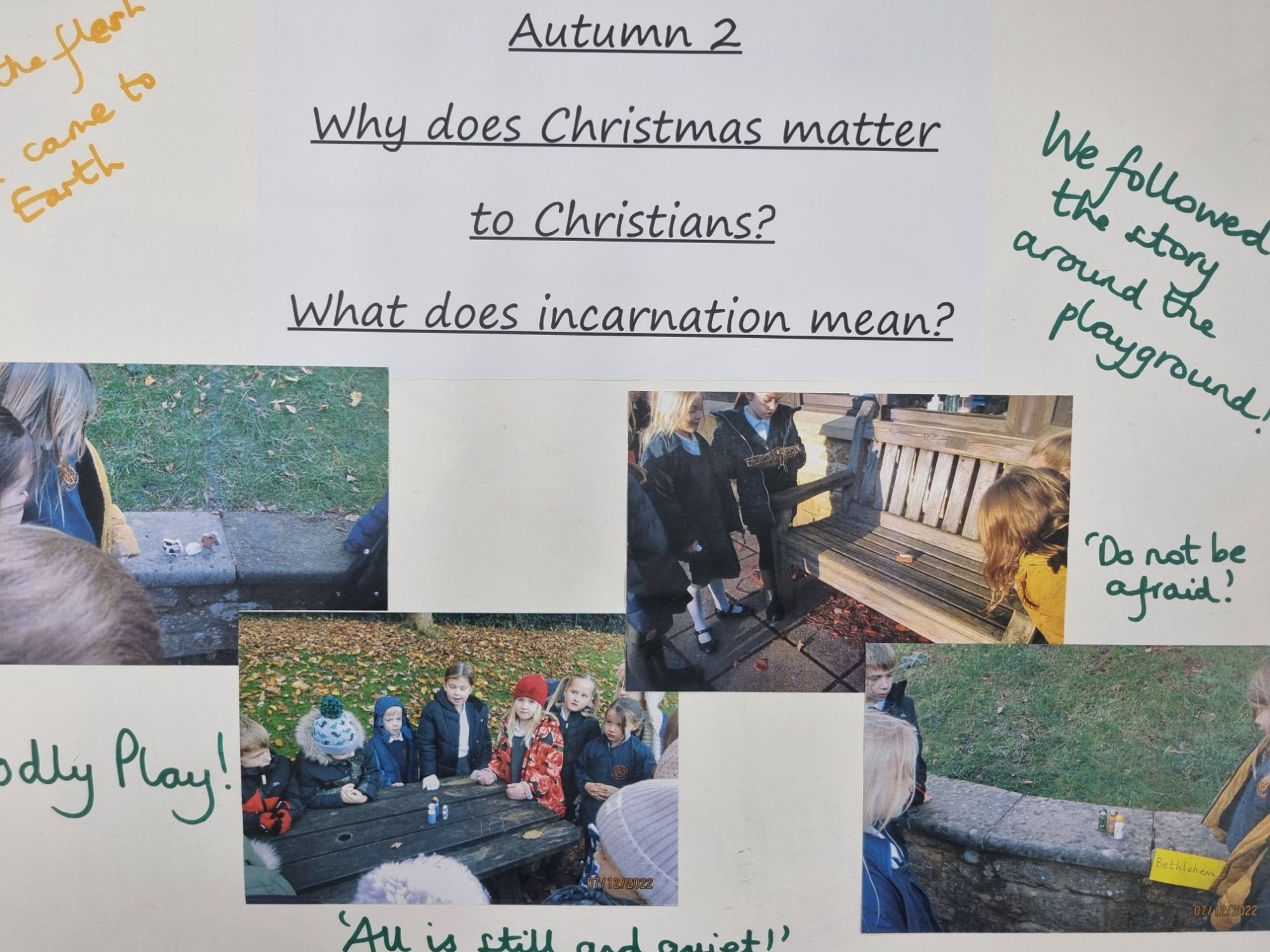
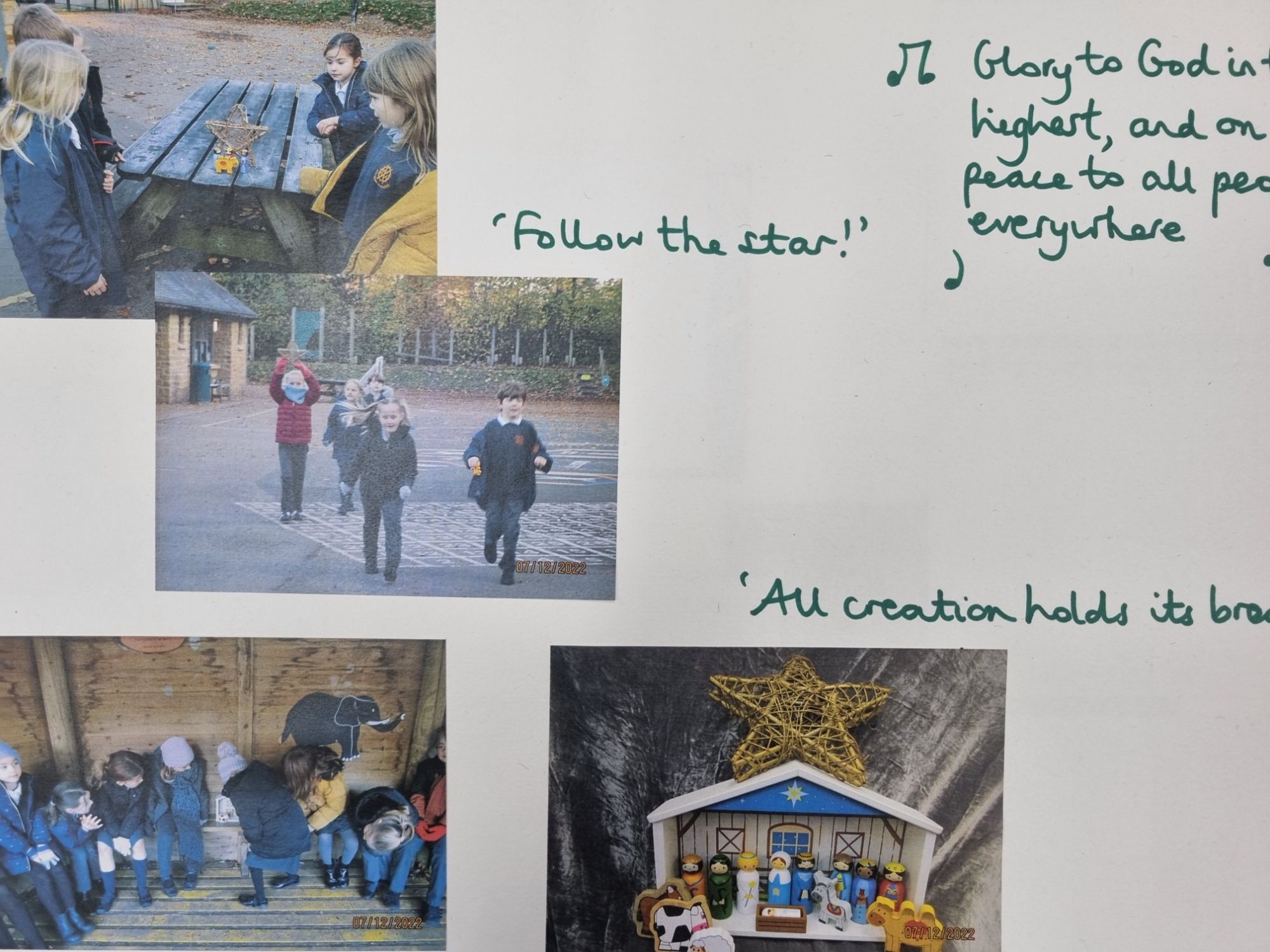
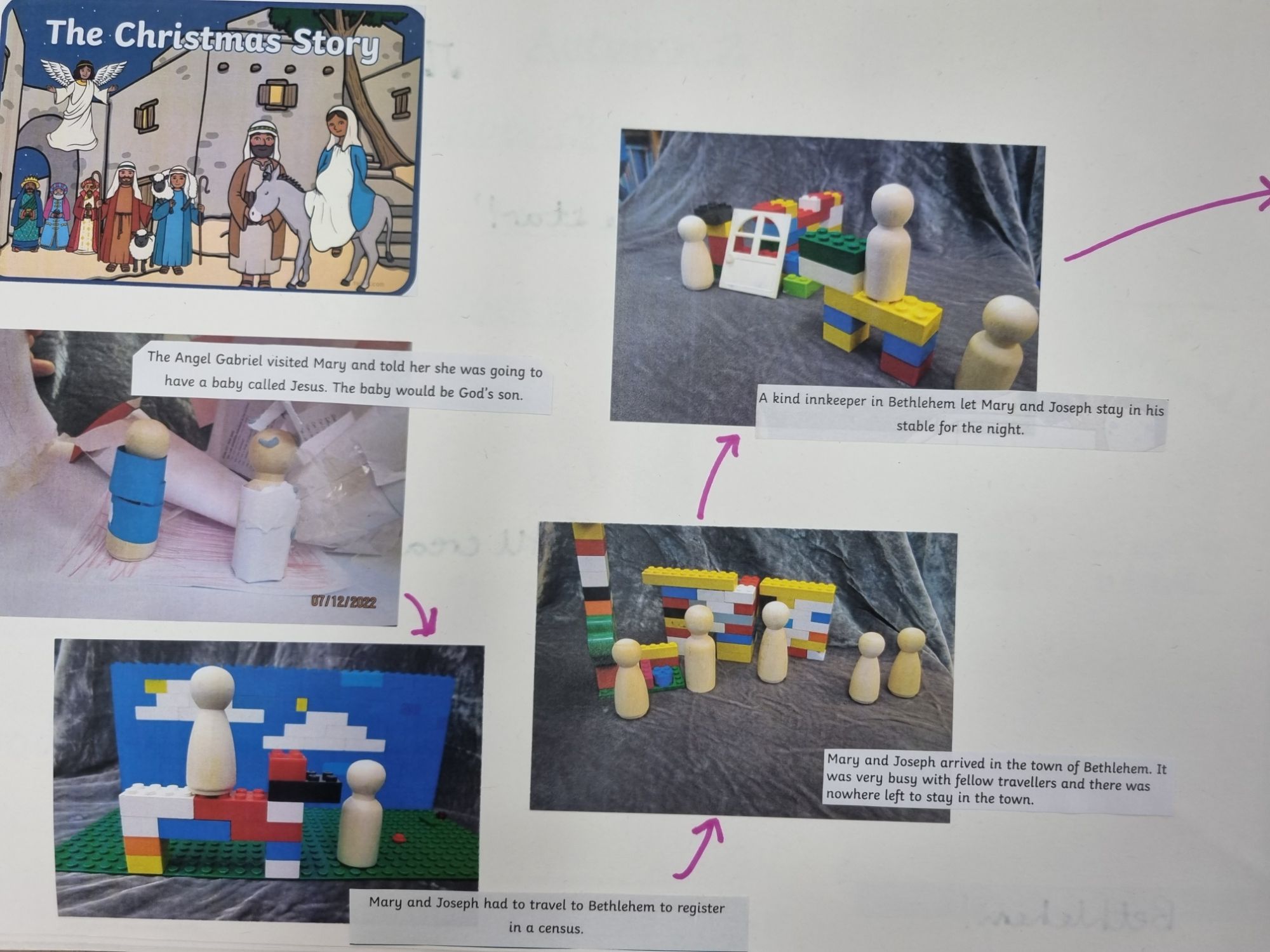
Reflection Areas
Around our school, you will find reflection areas in every classroom. Our reflection areas are very important spaces where pupils and adults can go to share their own prayers.
Christian Values
In our school, our Christian Values underpin our ethos, our behaviours and how we treat each other.
Every classroom and many communal areas have these displayed to keep them at the forefront of our minds.
Although each of the Christian Values are woven through our everyday life here at All Saints, we also focus on one Christian Value each term.
A parent does have the right to withdraw their child from religious education if so wished. In order to comply with the 1988 Education Reform Act each school is required to ensure that all pupils take part in daily collective worship. Nothing in the Education Reform Act affects parents’ rights, as established in the 1944 Act. Any parent does have the right to withdraw their child from collective worship if they wish.
